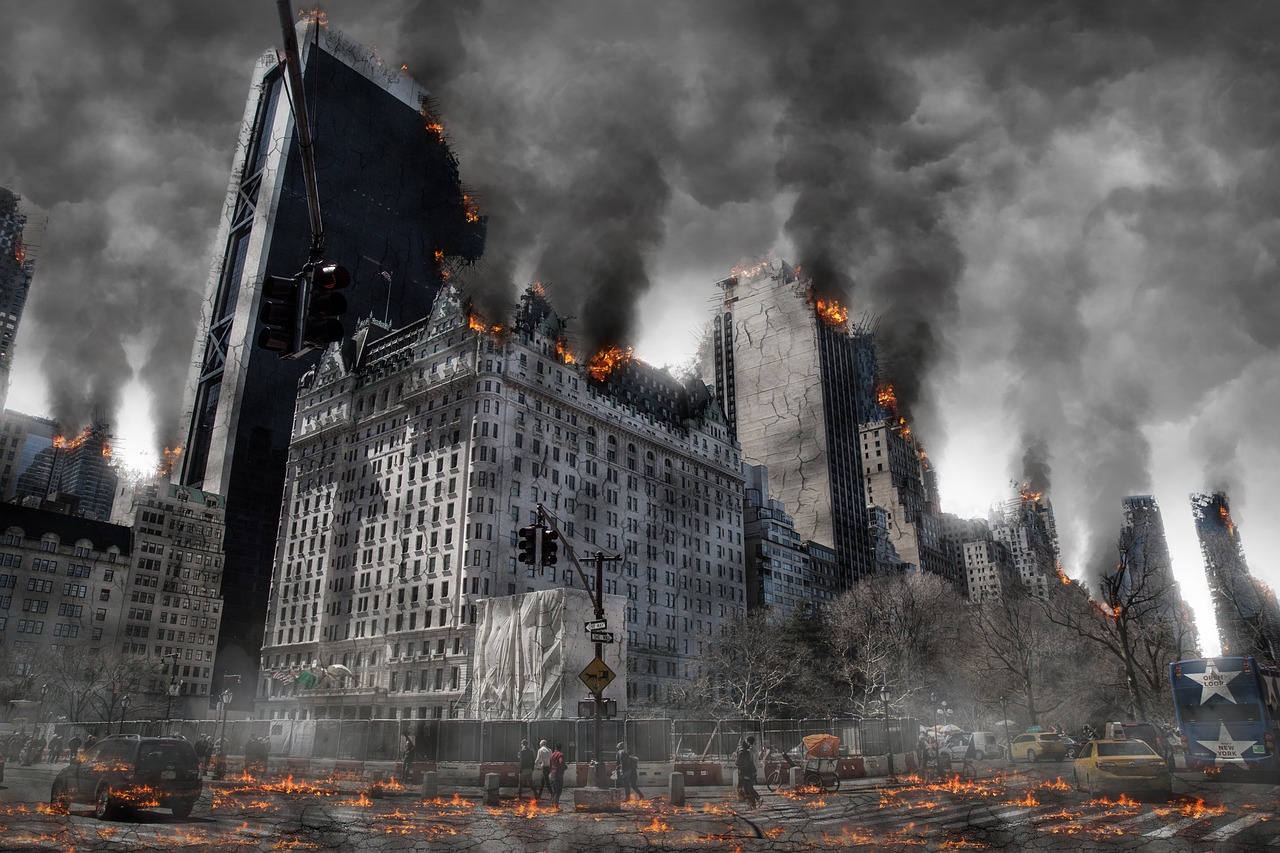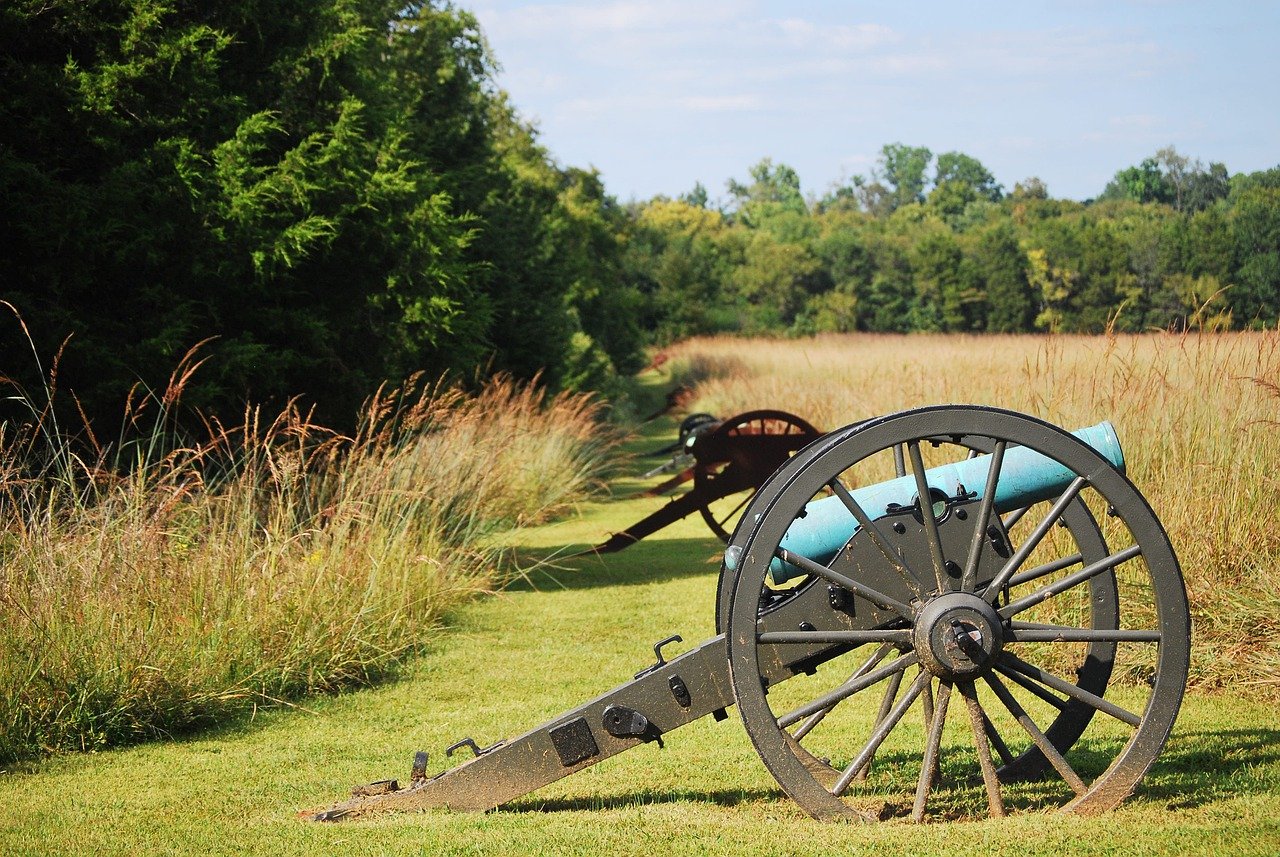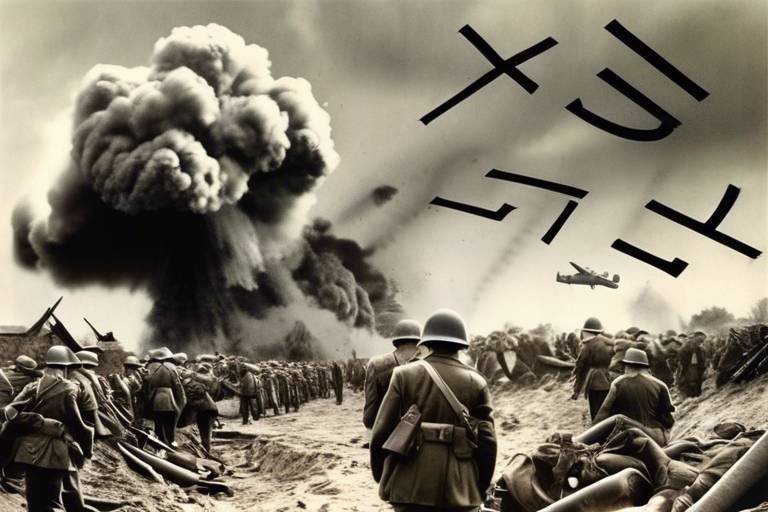The Causes of the English Civil War - A Historical Overview
Political conflicts between the monarchy and Parliament over power and authority, including disputes over taxation and the king's prerogative, laid the foundation for the English Civil War in the 17th century.
Deep-seated religious divides between Catholics and Protestants, exacerbated by the Reformation and the imposition of religious policies by the crown, fueled religious tensions that contributed to the outbreak of the English Civil War.
Growing economic challenges, such as inflation, taxation, and the enclosure movement, coupled with social grievances among the lower classes, created a volatile environment that added to the causes of the English Civil War.
The escalation of military conflicts, including the Bishops' Wars and the formation of rival armies, reflected power struggles between royalists and parliamentarians, escalating tensions that eventually led to the English Civil War.
Constitutional crises, such as the Petition of Right and the Long Parliament, highlighted legal disputes over governance and the limits of royal authority, contributing to the constitutional breakdown that precipitated the English Civil War.
Personal rivalries and leadership clashes among key figures like Charles I, Parliamentarians, and military commanders, such as Oliver Cromwell, played a significant role in shaping the course of events that culminated in the English Civil War.
Widespread popular unrest, including uprisings like the Irish Rebellion and Scottish Covenanters' revolt, underscored the broader discontent and dissatisfaction with the political and religious status quo, further fueling the conflict in England.
Foreign interventions, alliances, and conflicts, such as the involvement of France, Spain, and the Dutch Republic, added a dimension of international intrigue and power dynamics that influenced the course and outcomes of the English Civil War.
The English Civil War's legacy, marked by the execution of Charles I, the Interregnum, and the eventual Restoration, had a profound impact on English society, shaping political institutions, religious tolerance, and the concept of constitutional monarchy.

Religious Tensions and Reformation Ideals
Religious tensions and the clash of Reformation ideals were pivotal factors that fueled the flames of the English Civil War. The deep-rooted divide between Catholics and Protestants, exacerbated by the religious reforms sweeping through Europe, created a volatile atmosphere in England during the 17th century. The imposition of religious policies by the crown further inflamed these tensions, pushing the country closer to the brink of conflict.
The Reformation, with its revolutionary ideas challenging the authority of the Catholic Church, stirred up intense emotions and ideological battles. The religious landscape of England was undergoing a profound transformation, with individuals and communities deeply divided along religious lines. The clash between traditional Catholic beliefs and the emerging Protestant faiths added a layer of complexity to the already strained relations between the monarchy and Parliament.
As the crown sought to assert its control over religious practices and beliefs, dissent and resistance grew among those who held opposing views. The enforcement of religious conformity through laws and decrees only served to deepen the rift within society, setting the stage for a confrontation that would have far-reaching consequences.
The religious tensions of the time were not merely theological debates; they were intertwined with political power struggles and questions of authority. The competing visions of how religion should be practiced and governed in England became a battleground where broader issues of governance and liberty were fought.
Ultimately, the collision of religious tensions and Reformation ideals with the political and social challenges of the era created a combustible mix that contributed significantly to the outbreak of the English Civil War, reshaping the course of English history in profound ways.

Economic Strains and Social Discontent
Amidst the turbulent backdrop of the 17th century, England found itself grappling with a myriad of economic challenges that sowed seeds of discontent among its populace. The relentless march of inflation, coupled with burdensome taxation policies, weighed heavily on the shoulders of the common folk. As the gap between the rich and the poor widened, the lower classes bore the brunt of economic hardships, fueling resentment and frustration.
Furthermore, the enclosure movement, which saw common lands being privatized for the benefit of the wealthy elite, further exacerbated social inequalities and disenchantment. The displacement of rural communities and the loss of traditional livelihoods left many destitute and disillusioned, breeding a sense of injustice and unrest across the countryside.
These economic strains not only strained the fabric of society but also laid the groundwork for social discontent to fester and ferment. The simmering discontent among the disenfranchised segments of society, coupled with the economic hardships they endured, created a volatile environment ripe for dissent and upheaval.
As economic disparities deepened and social grievances mounted, the undercurrent of discontent bubbled to the surface, setting the stage for a clash of ideologies and interests that would ultimately converge in the crucible of the English Civil War.

Military Conflicts and Power Struggles
The period leading up to the English Civil War was marked by intense military conflicts and power struggles between the royalists and parliamentarians. The Bishops' Wars, a series of conflicts between Charles I and the Scottish Covenanters over religious and political issues, set the stage for larger confrontations. As tensions escalated, both sides began to form rival armies, each vying for control and dominance. These military confrontations were not just about battles on the field but represented a deeper struggle for power and authority within the realm. The clash of arms mirrored the broader political and ideological divisions that were tearing the nation apart.
The military conflicts were not only about strategic maneuvers and battlefield tactics but were also a reflection of the power struggles that were unfolding at the highest levels of government. The royalists, loyal to the king, sought to uphold monarchical authority and the divine right of kings, while the parliamentarians, led by figures like Oliver Cromwell, aimed to challenge and limit the king's power in favor of parliamentary sovereignty. This clash of ideologies and ambitions fueled the military conflicts, turning them into symbolic battles for the future direction of the nation.
The formation of rival armies and the mobilization of forces across the country intensified the power struggles between the opposing factions. Military leaders emerged on both sides, commanding troops and making strategic decisions that would shape the course of the conflict. The military conflicts were not just about winning battles but about asserting dominance and control over key territories and resources. The shifting allegiances and alliances further complicated the power dynamics, creating a complex web of loyalties and betrayals that characterized this tumultuous period.
The military conflicts and power struggles during the English Civil War were not isolated events but were interconnected with the broader political, religious, and social upheavals of the time. The outcome of these conflicts would not only determine the immediate fate of the nation but would also have far-reaching consequences for the future of English society and governance. The battles fought on the fields of England were not just about military might but were symbolic of the larger struggle for the soul of the nation and the balance of power between the monarchy and Parliament.

Constitutional Crises and Legal Disputes
Constitutional crises and legal disputes were pivotal factors that contributed to the onset of the English Civil War, marking a significant turning point in the nation's governance and legal framework. The Petition of Right, a key document that sought to limit the king's power and uphold the rights of Parliament, symbolized the growing tensions between Charles I and the Parliament. This conflict over governance and the boundaries of royal authority intensified with the convening of the Long Parliament, which further exposed the deep-rooted legal disputes that plagued the relationship between the monarchy and Parliament.
Amidst these constitutional crises, questions surrounding the fundamental principles of English law and governance came to the forefront. The clash between the king's prerogative and parliamentary sovereignty underscored the broader struggle for political supremacy and legal legitimacy. The debates over the extent of royal authority and the rights of subjects highlighted the inherent conflicts within the English legal system, setting the stage for a constitutional breakdown that ultimately led to armed conflict.
Furthermore, the legal disputes during this period reflected the broader societal tensions and ideological divisions that permeated English politics. The competing visions of governance, rooted in differing interpretations of law and justice, fueled the flames of discontent and resistance against the monarchy's perceived overreach of power. As legal arguments clashed with political realities, the stage was set for a showdown that would redefine the balance of power and reshape the legal landscape of England.
Within this turbulent legal and constitutional backdrop, the English Civil War emerged as a culmination of years of simmering discontent and unresolved legal disputes. The breakdown of traditional legal norms and the erosion of constitutional safeguards paved the way for a conflict that would not only reshape the political landscape of England but also leave a lasting impact on the nation's legal framework and governance structure.
In conclusion, the constitutional crises and legal disputes that characterized the lead-up to the English Civil War were not merely legal technicalities but profound reflections of deeper societal rifts and power struggles. The clash of legal principles and political ambitions laid bare the fragility of England's legal system and the complexities of governing a nation torn apart by competing interests and ideologies.

Personalities and Leadership Clashes
When delving into the intricate web of events leading up to the English Civil War, one cannot ignore the pivotal role played by the clash of personalities and leadership styles among key figures of the time. At the forefront stood King Charles I, a monarch whose staunch belief in the divine right of kings clashed with the growing demands for parliamentary power. His confrontations with Parliamentarians, led by figures like John Pym and John Hampden, epitomized the political tensions that ultimately erupted into open conflict.
On the opposing side, the emergence of formidable leaders like Oliver Cromwell reshaped the course of the war. Cromwell's military prowess and unwavering commitment to the Parliamentarian cause propelled him to the forefront of the conflict, leading to decisive victories that altered the balance of power. His clashes with royalist commanders, such as Prince Rupert of the Rhine, epitomized the intense rivalries that fueled the flames of war.
Moreover, the personal dynamics among key players extended beyond the battlefield. The complex relationships between Charles I and his wife, Queen Henrietta Maria, who held strong Catholic beliefs, added a religious dimension to the conflict. Meanwhile, the ideological differences between Parliamentarians like John Pym and moderate voices within their ranks further complicated the political landscape, leading to internal power struggles that echoed on the battlefield.
In essence, the English Civil War was not just a clash of armies, but a clash of egos, beliefs, and visions for the future of England. The intricate tapestry of personalities and leadership clashes woven into the fabric of this turbulent period shaped the course of history and left an indelible mark on the nation's collective memory.

Popular Unrest and Revolts
During the turbulent times leading up to the English Civil War, popular unrest and revolts were widespread across the country. The discontent among the population, especially the lower classes, was fueled by a combination of economic hardships, religious tensions, and political grievances.
One of the notable uprisings during this period was the Irish Rebellion, which erupted in 1641. The rebellion, led by Irish Catholic gentry and the Gaelic Irish, aimed to assert Irish autonomy and challenge English Protestant domination. The violence and bloodshed that ensued further exacerbated the already tense situation in England.
Similarly, the Scottish Covenanters' revolt added to the chaos. The Covenanters, a Presbyterian movement in Scotland, rebelled against attempts by Charles I to impose Anglican religious practices in Scotland. This conflict spilled over into England and became intertwined with the larger political and religious struggles of the time.
The popular unrest and revolts served as a reflection of the deep-seated dissatisfaction with the existing political and religious structures. The common people, feeling marginalized and oppressed, sought to challenge the status quo and demand greater rights and representation in governance.
These uprisings not only highlighted the social discontent prevalent in England but also contributed to the escalating tensions that eventually erupted into full-blown civil war. The popular movements of the time played a crucial role in shaping the course of events and influencing the outcomes of the conflict.

International Influences and Foreign Interventions
International influences and foreign interventions played a pivotal role in shaping the course of the English Civil War, adding a layer of complexity to the domestic conflict. The involvement of foreign powers, such as France, Spain, and the Dutch Republic, brought a global dimension to the war, with each nation pursuing its own strategic interests in the English conflict.
France, under the leadership of Cardinal Richelieu, saw an opportunity to weaken its rival, Spain, by supporting the Parliamentarians against the royalists. The French intervention not only provided financial and military assistance to the Parliamentarians but also added diplomatic pressure on the monarchy, further escalating the conflict.
Similarly, Spain, seeking to maintain its influence in Europe, supported the royalist cause, viewing a strong monarchy in England as beneficial to its own interests. The Spanish intervention prolonged the war and intensified the fighting, as both sides received support and resources from their respective foreign allies.
The Dutch Republic, a rising naval power in Europe, also had a stake in the outcome of the English Civil War. The Dutch provided naval support to the Parliamentarians, hoping to secure trading advantages and weaken English competition in overseas markets. This foreign intervention added a maritime dimension to the conflict, with naval engagements and blockades affecting the course of the war.
Overall, the international influences and foreign interventions in the English Civil War underscored the interconnected nature of European politics in the 17th century. The conflict in England became a battleground for competing powers, each seeking to advance its own interests and influence the outcome of the war, leaving a lasting impact on the course of English history.

Legacy and Impact on English Society
As the dust settled on the battlefield and the echoes of cannons faded into history, the English Civil War left a lasting legacy that reverberated through English society for generations to come. The execution of Charles I, the establishment of the Commonwealth under Oliver Cromwell, and the eventual Restoration of the monarchy all marked pivotal moments that reshaped the political landscape of England.
The impact of the English Civil War extended far beyond the realm of politics, influencing the very fabric of English society. The conflict spurred debates on the nature of governance, the rights of individuals, and the role of religion in public life. It paved the way for the development of constitutional monarchy and the gradual shift towards greater religious tolerance.
One of the enduring legacies of the English Civil War was the notion of accountability and limits to royal authority. The execution of Charles I sent shockwaves through Europe, challenging the divine right of kings and asserting the principle that rulers were subject to the law and the will of the people.
Religious tolerance also emerged as a key outcome of the English Civil War, as the conflict highlighted the dangers of religious persecution and the need for coexistence among different faiths. The experience of religious strife during the war led to a greater emphasis on religious freedom and the separation of church and state.
Moreover, the English Civil War had a profound impact on the development of political institutions in England. The establishment of the Commonwealth and the subsequent Restoration of the monarchy marked a period of experimentation with different forms of government, ultimately shaping the evolution of parliamentary democracy in England.
While the scars of the English Civil War ran deep, the conflict also laid the groundwork for a more inclusive and participatory society. The experiences of the war, with its upheavals and uncertainties, fostered a sense of resilience and adaptability among the English people, shaping their collective identity and sense of national purpose.
Frequently Asked Questions
- What were the main causes of the English Civil War?
The main causes of the English Civil War included political turmoil and disputes over monarchical authority, religious tensions stemming from the Reformation, economic strains and social discontent, military conflicts between royalists and parliamentarians, constitutional crises, personal rivalries among key figures, popular unrest, and foreign interventions.
- How did political conflicts contribute to the outbreak of the English Civil War?
Political conflicts between the monarchy and Parliament, particularly over issues like taxation and the king's prerogative, created a power struggle that laid the foundation for the English Civil War. The disagreements over governance and authority escalated tensions and eventually led to armed conflicts.
- What role did religious tensions play in fueling the English Civil War?
Religious tensions, exacerbated by the divide between Catholics and Protestants and the imposition of religious policies by the crown, played a significant role in contributing to the outbreak of the English Civil War. The deep-seated religious divides added a layer of complexity to the already volatile political landscape.
- How did the English Civil War impact English society?
The English Civil War had a profound impact on English society, shaping political institutions, religious tolerance, and the concept of constitutional monarchy. The legacy of the war, marked by the execution of Charles I and the eventual Restoration, influenced the development of modern England and its governance.



















